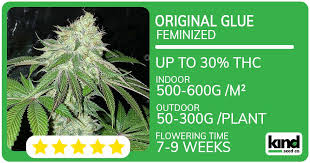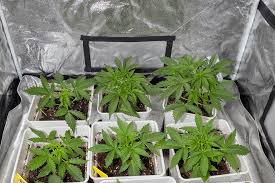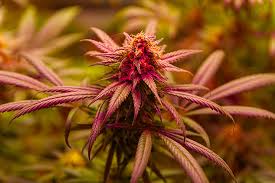
The Ultimate Guide to Buying and Growing Weed Seeds in West Virginia
In recent years, the landscape surrounding cannabis legality and usage has dramatically shifted across the United States. For residents of West Virginia, interest in weed seeds west virginia has surged, as more individuals consider cultivating their own marijuana for recreational or medicinal purposes. This guide will explore what you need to know about weed seeds in West Virginia, from purchasing options to cultivation techniques, ensuring you have the information necessary to embark on your cannabis-growing journey.
Understanding the Legal Landscape
Before delving into the specifics of buying and growing weed seeds, it’s vital to understand the legal context in West Virginia. As of now, medical cannabis is legal in the state, allowing qualified patients to access marijuana for therapeutic use. However, recreational use remains illegal, which complicates the situation for those looking to grow cannabis at home. Always ensure you are well-informed about the laws in your area to avoid any potential legal issues.
Where to Buy Weed Seeds in West Virginia
If you’re interested in growing your own cannabis, the first step is to purchase seeds. There are a few different places you can consider:
- Online Seed Banks: Many reliable online seed banks offer a wide variety of cannabis seeds, including feminized, autoflowering, and regular seeds. Websites like ILoveGrowingMarijuana, Crop King Seeds, and others ship to West Virginia and provide discreet delivery options.
- Local Dispensaries: If you have a medical cannabis card, certain dispensaries in West Virginia may offer cannabis seeds in addition to other products. It’s always best to check your local dispensary’s availability.
- Growers’ Markets: Depending on the local regulations, some farmers’ markets or agricultural fairs may have vendors selling seeds. Make sure to verify the source and quality of the seeds before purchasing.
Types of Weed Seeds

Understanding the different types of cannabis seeds is essential for successful cultivation. Here are the main categories:
- Feminized Seeds: These seeds are bred to produce only female plants, which are the ones that yield the bud. Feminized seeds are an excellent choice for beginners who want to ensure they’re growing plants that produce usable cannabis.
- Autoflowering Seeds: Autoflowering seeds switch from the vegetative phase to the flowering phase based on age rather than light exposure. This makes them ideal for beginners and those with shorter growing seasons.
- Regular Seeds: Regular seeds produce both male and female plants, which can be beneficial for growers looking to breed their own strains. However, they require more knowledge and experience to manage successfully.
Germinating Your Weed Seeds
Once you have procured your seeds, the next step is germination. This process is crucial as it determines the initial health of your cannabis plants. Here are a few steps for successful germination:
- Soak the seeds in water for about 24 hours to soften the outer shell.
- Transfer the seeds to a damp paper towel, folding it over them to ensure moisture retention.
- Place the towel in a dark, warm environment (around 70-85°F or 21-29°C) for 2-7 days until sprouts appear.
- Once the roots are about an inch long, transfer the sprouts to your growing medium.
Choosing the Right Growing Medium
The growing medium is critical for the health and yield of your cannabis plants. Here are some options:
- Soil: A rich, well-draining soil that retains moisture while allowing for aeration is perfect for beginners.
- Coco Coir: This is a popular choice among experienced growers as it retains moisture well and promotes healthy root development.
- Hydroponics: For advanced growers, hydroponic systems allow for faster growth using nutrient-rich water rather than soil.
The Importance of Lighting

Cannabis plants require ample light for photosynthesis, so proper lighting is essential during their growth phases. Here are a few lighting options:
- LED Lights: Energy-efficient and long-lasting, LED lights provide a full spectrum of light, making them ideal for all growth stages.
- HID Lights: High-Intensity Discharge lights, including Metal Halide and High-Pressure Sodium lights, are powerful options that can promote significant growth.
- T5 Fluorescent Lights: While not as powerful, T5 lights are excellent for seedlings and clones.
Watering and Nutrient Needs
Watering your plants properly is key to their success. Overwatering is one of the most common mistakes made by novice growers. It’s essential to allow the soil to dry slightly between waterings. Additionally, cannabis plants require specific nutrients at different growth stages, including nitrogen, phosphorus, and potassium.
Harvesting Your Cannabis
Knowing when to harvest is critical for optimal potency and flavor. Typically, when the trichomes (tiny resin glands) turn from clear to milky white, and a few have turned amber, it’s time to harvest. The process involves cutting the plant at the base, hanging the branches upside down in a dark, cool environment to dry before curing.
Storing Your Cannabis
Proper storage of your harvested cannabis can significantly affect its quality over time. Store your cured buds in airtight glass jars, away from direct sunlight and at stable temperatures to preserve cannabinoids and terpenes. Avoid using plastic containers, which can degrade cannabis quality.
Conclusion
As cannabis law continues to evolve, West Virginia offers an exciting opportunity for residents interested in cultivating their own cannabis. By understanding the legal parameters, sources for weed seeds west virginia, and the essential elements of growth, you can embark on a rewarding growing experience. Whether for personal use or medical reasons, growing cannabis can be a fulfilling hobby that connects you to the plants and the process of cultivation.
